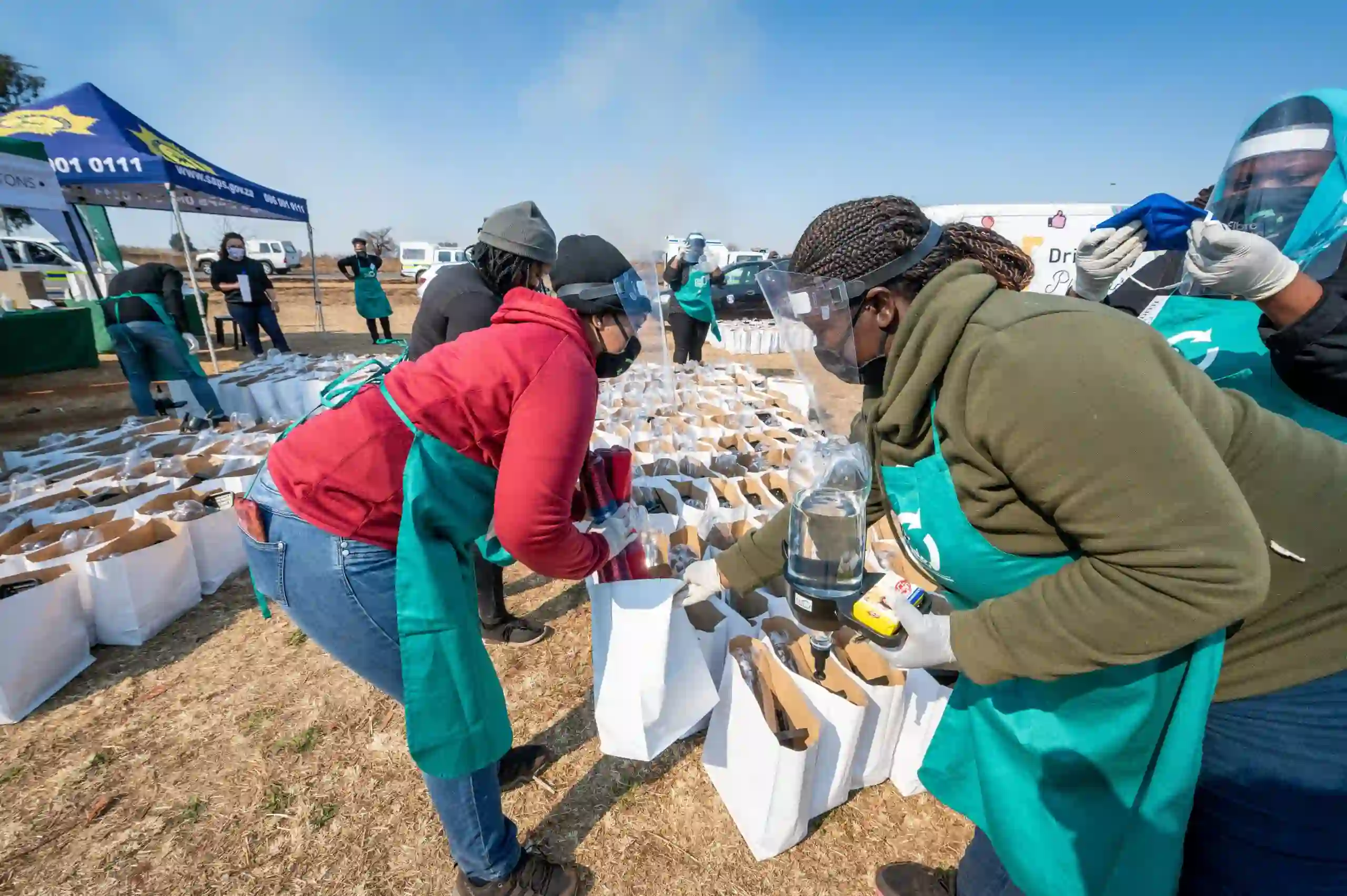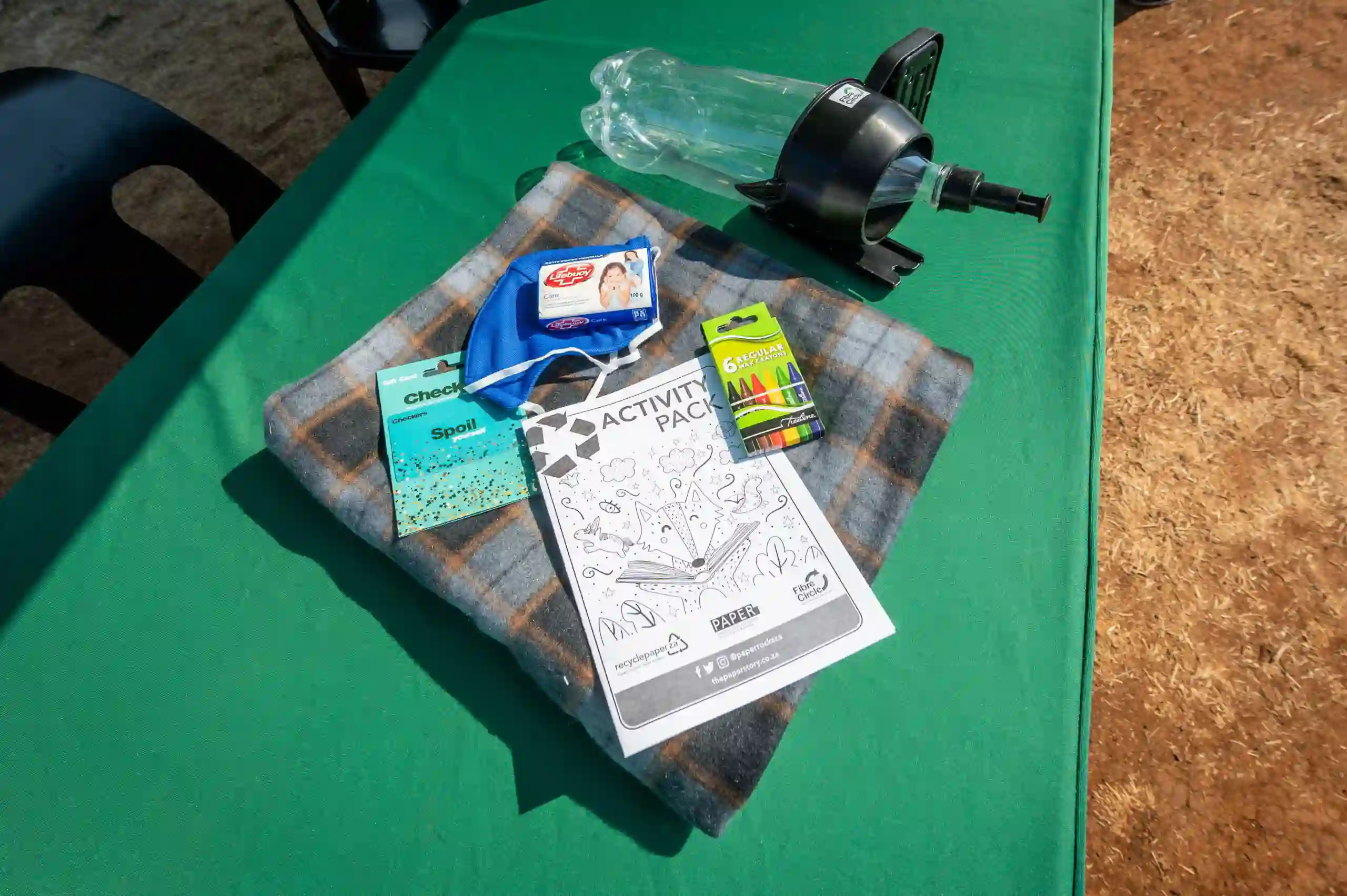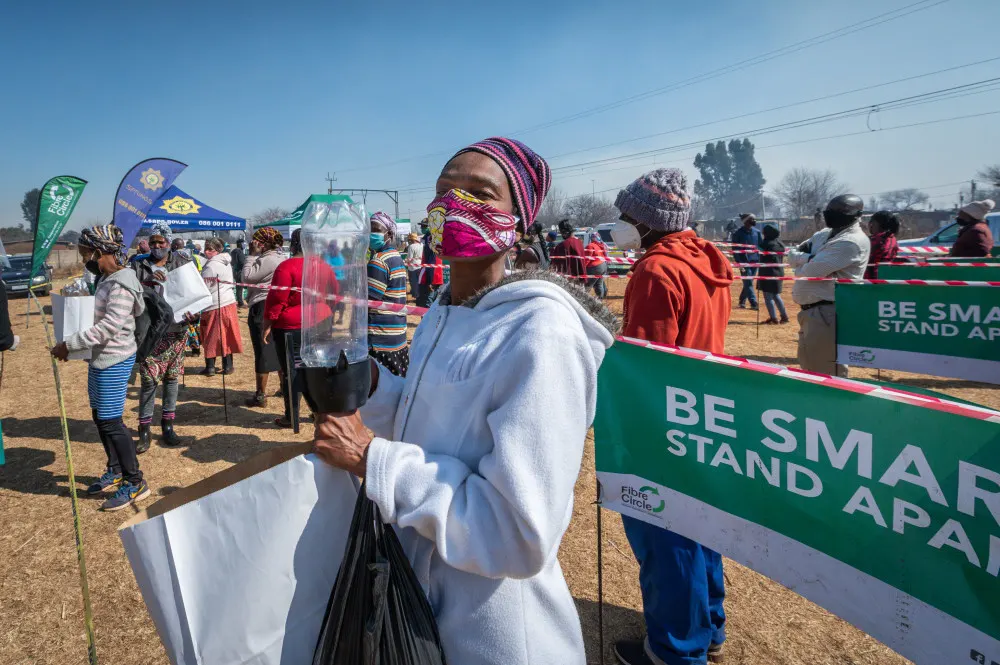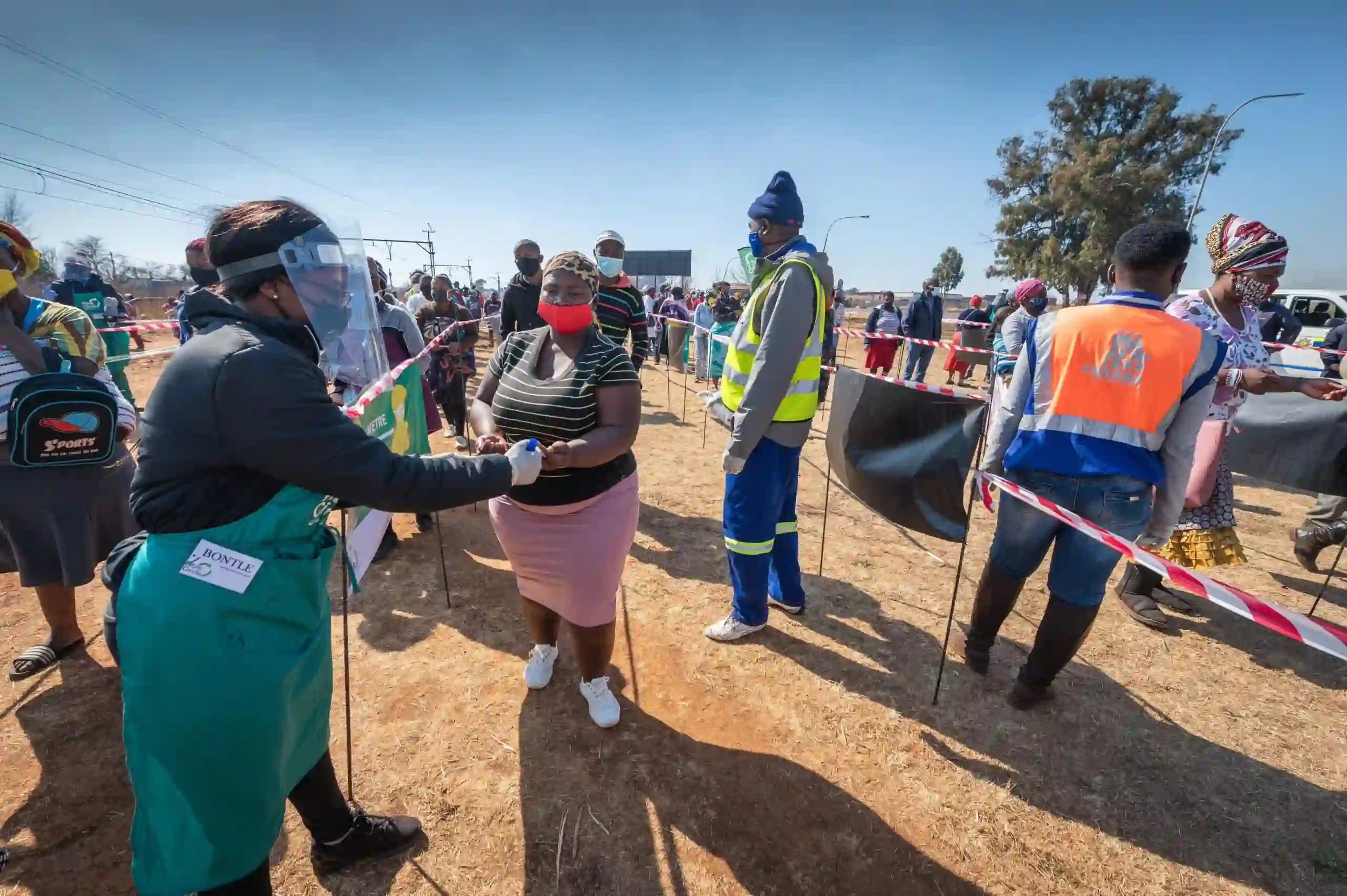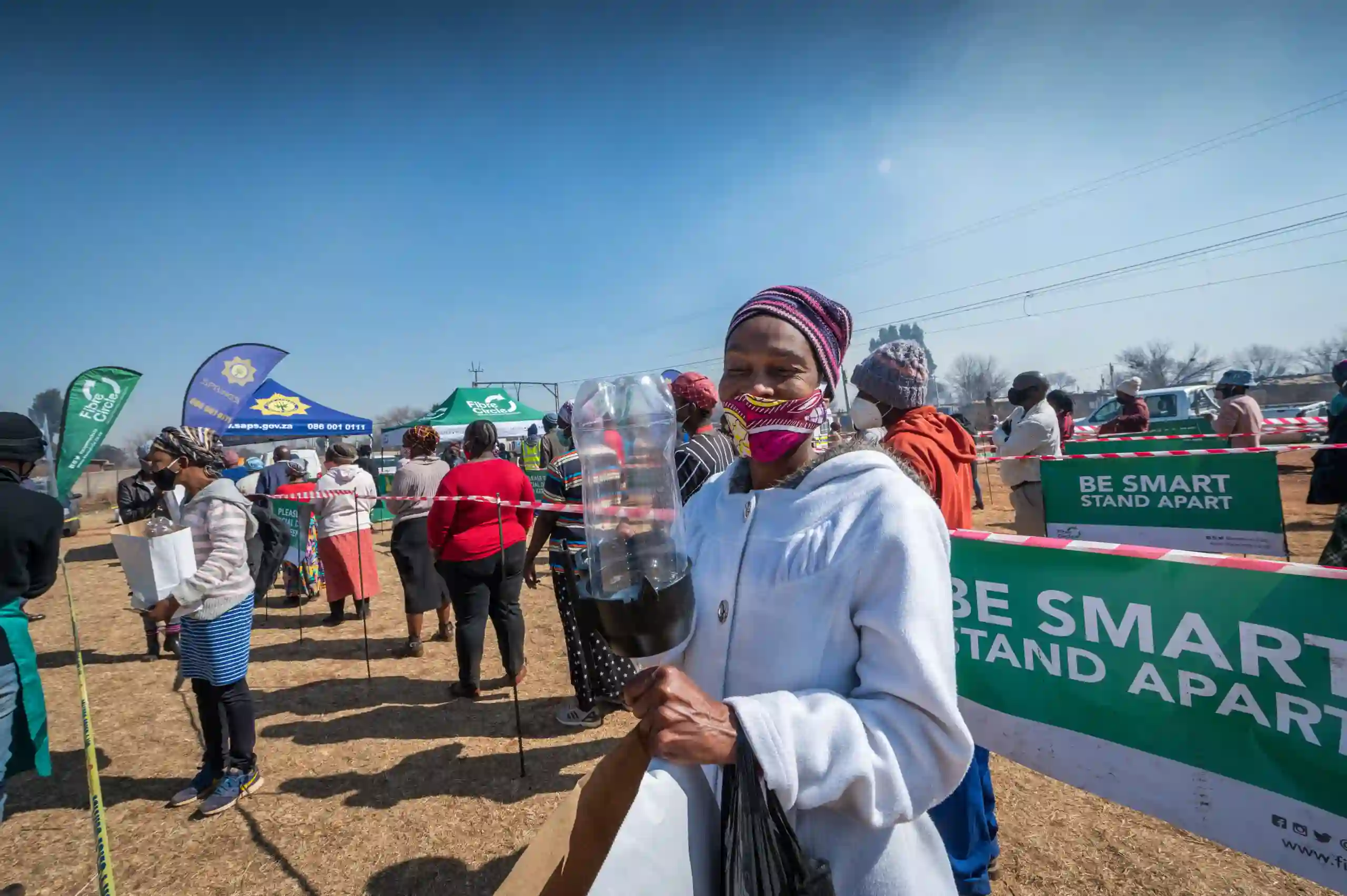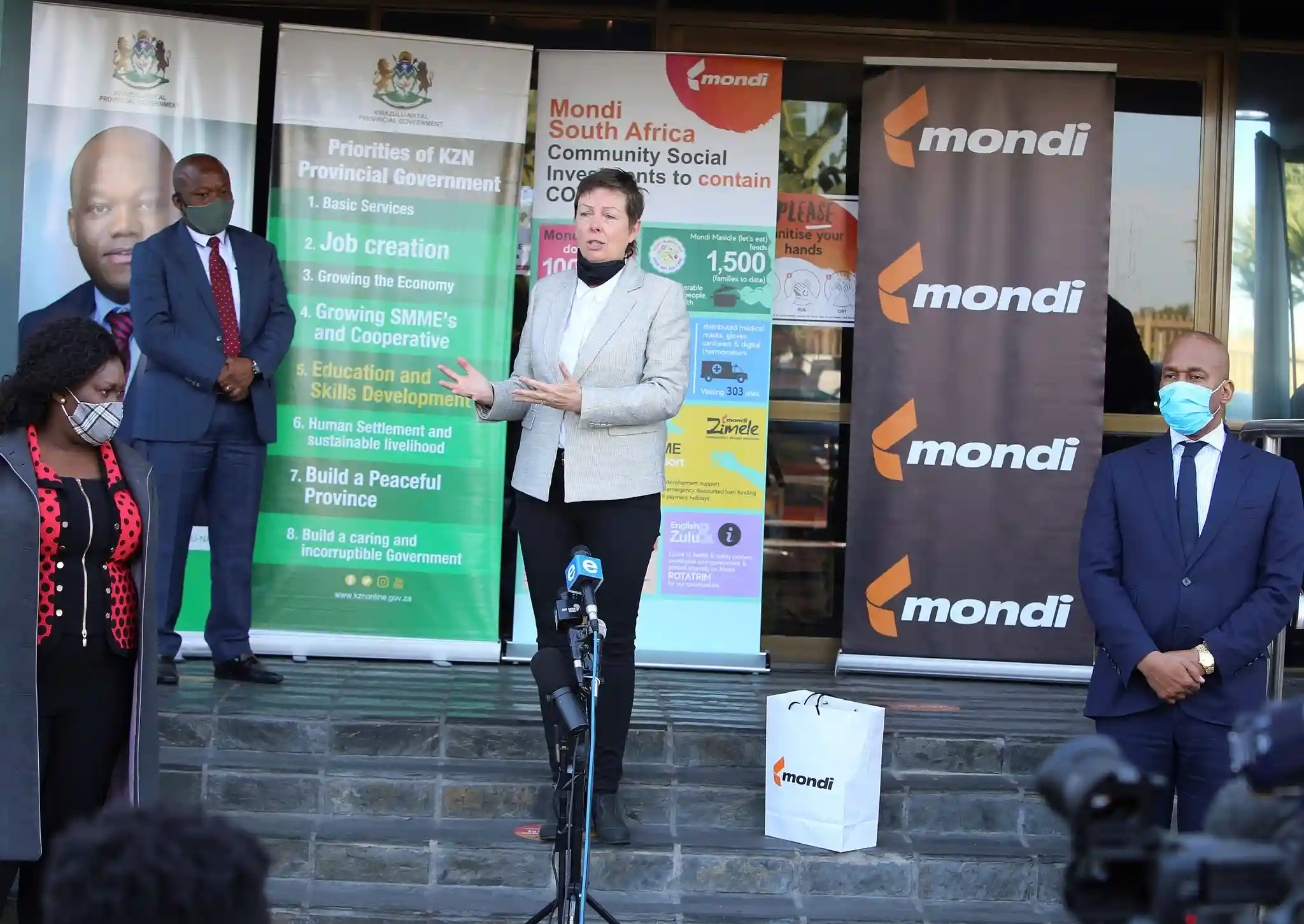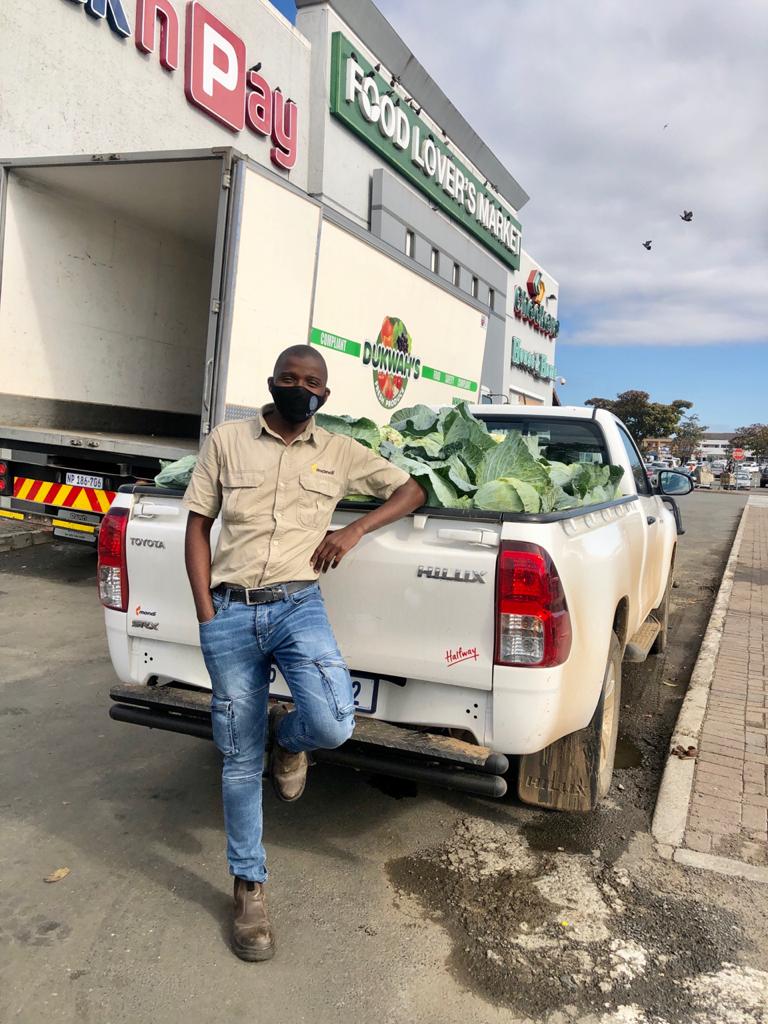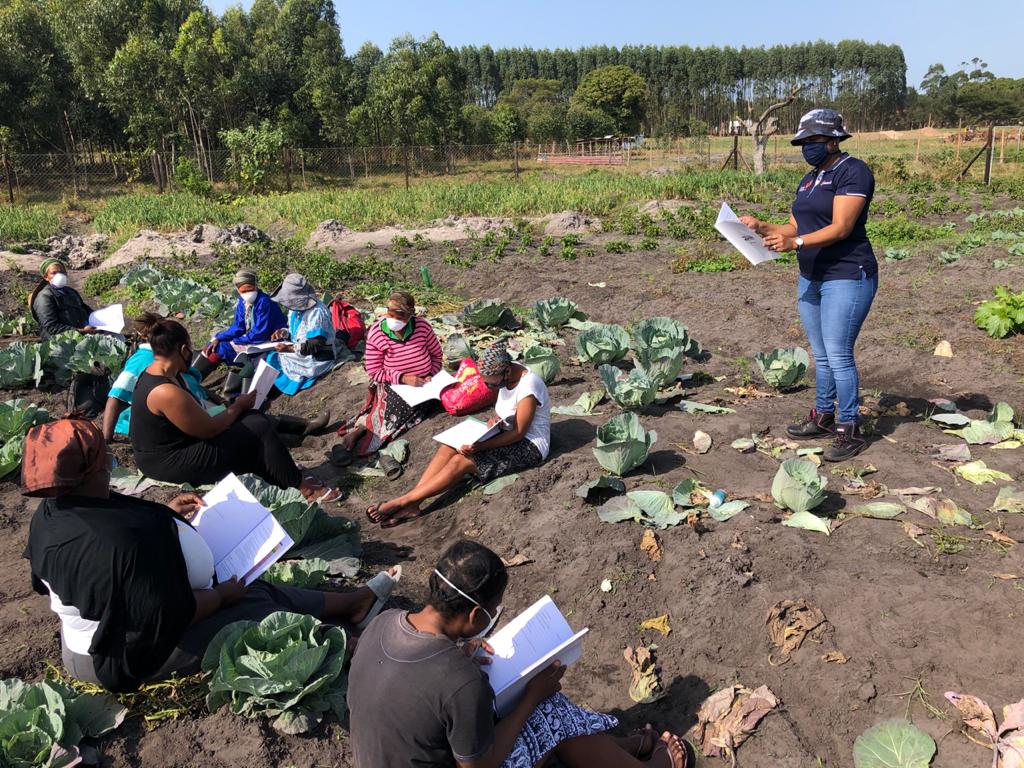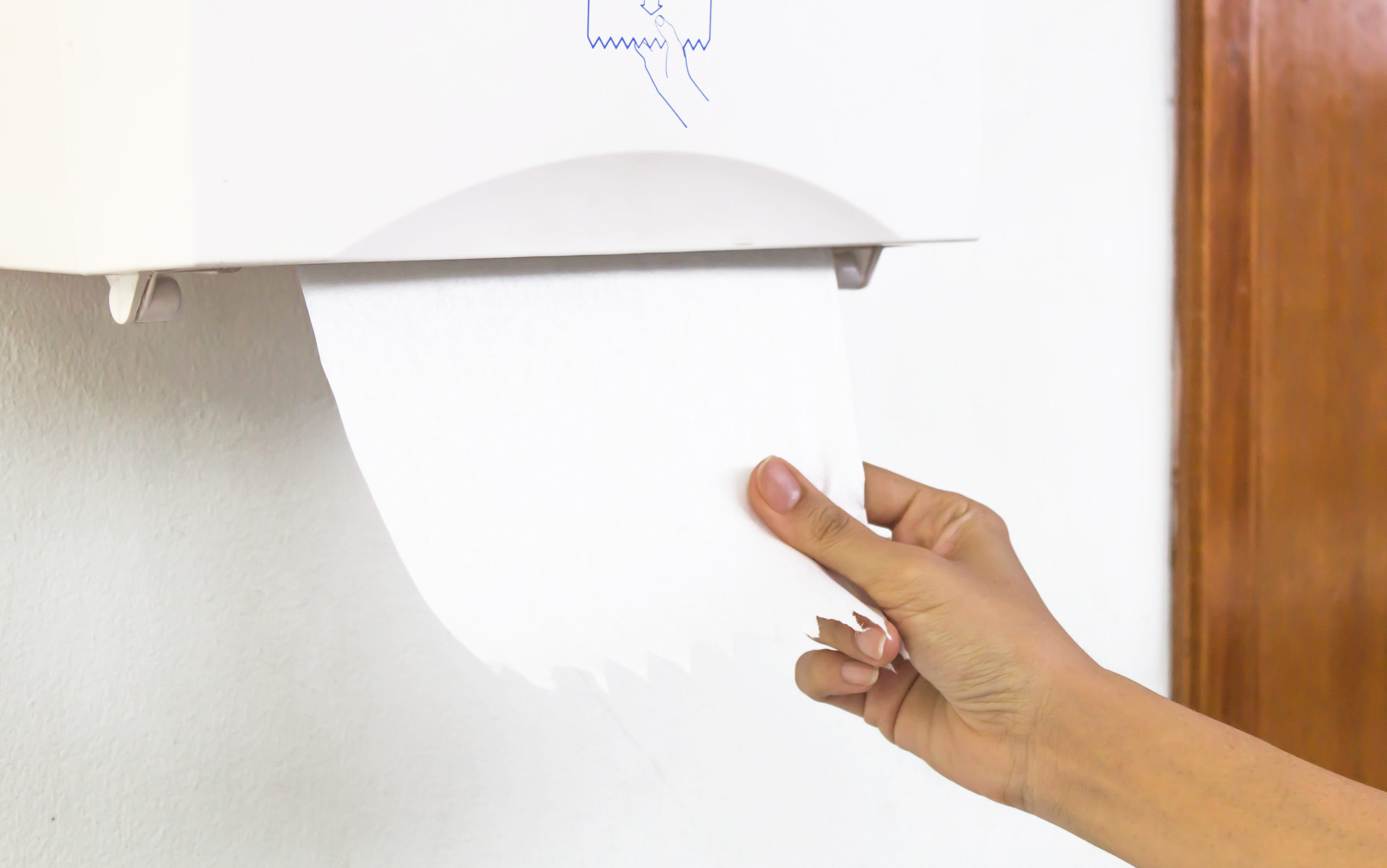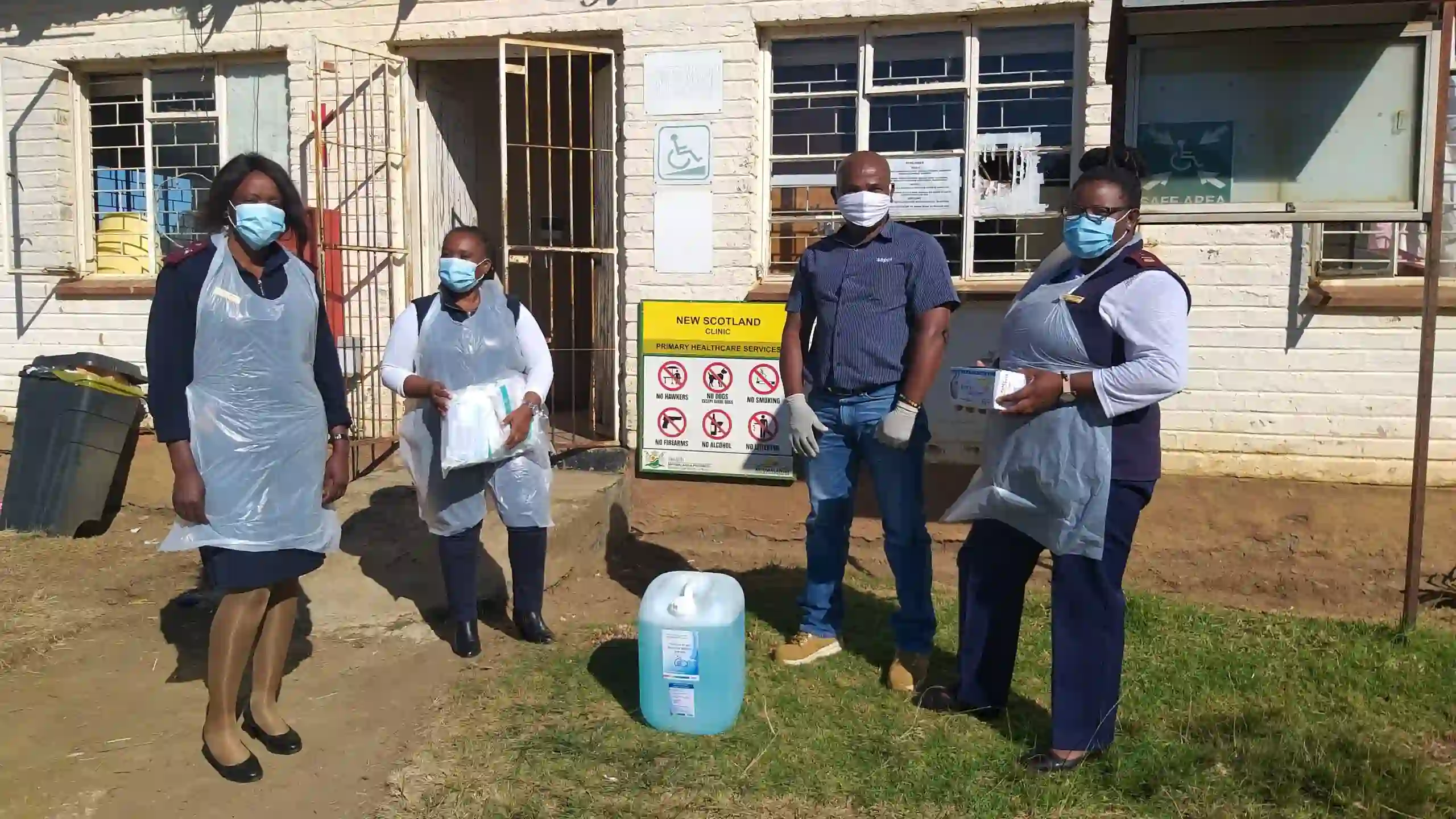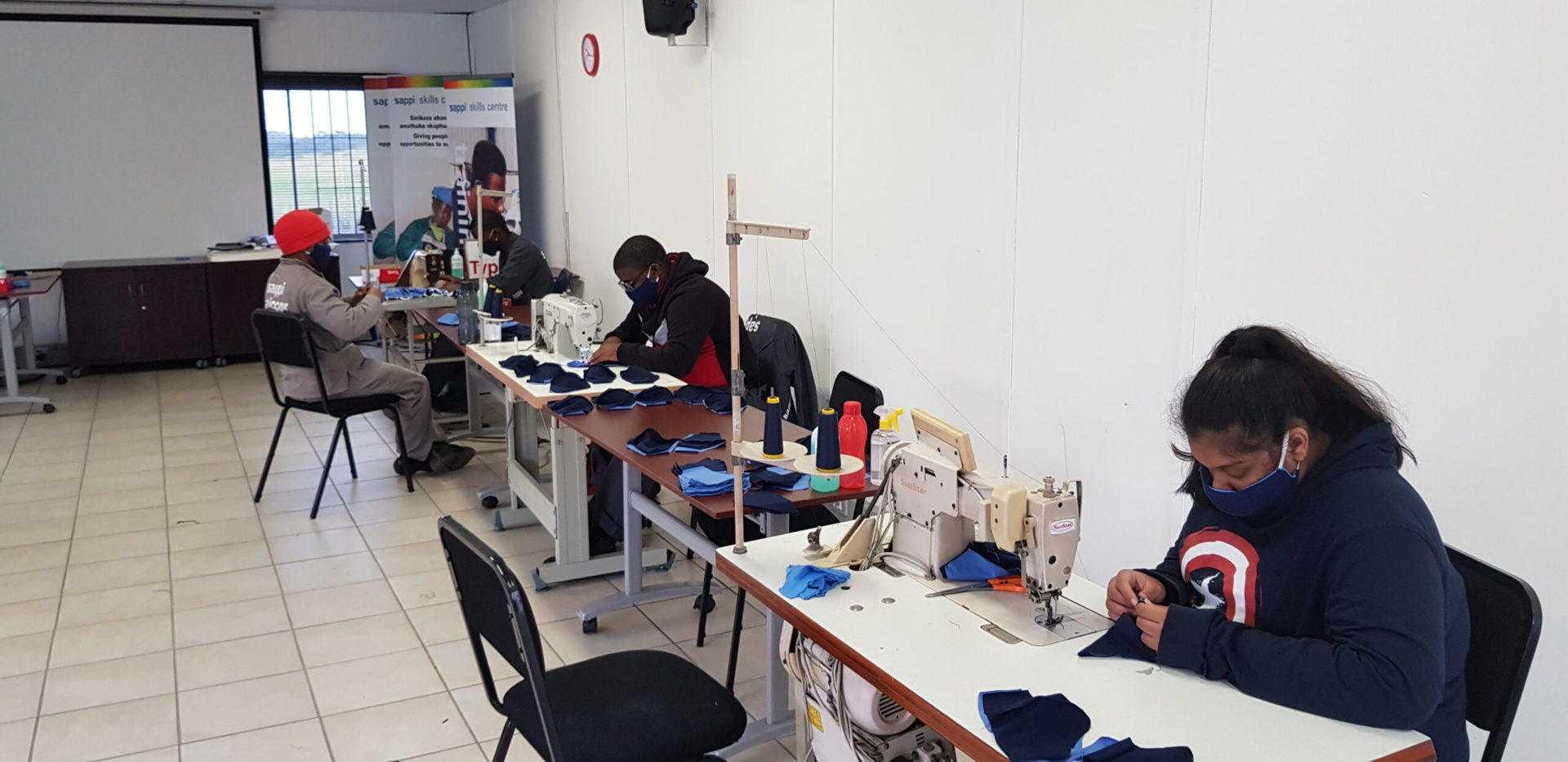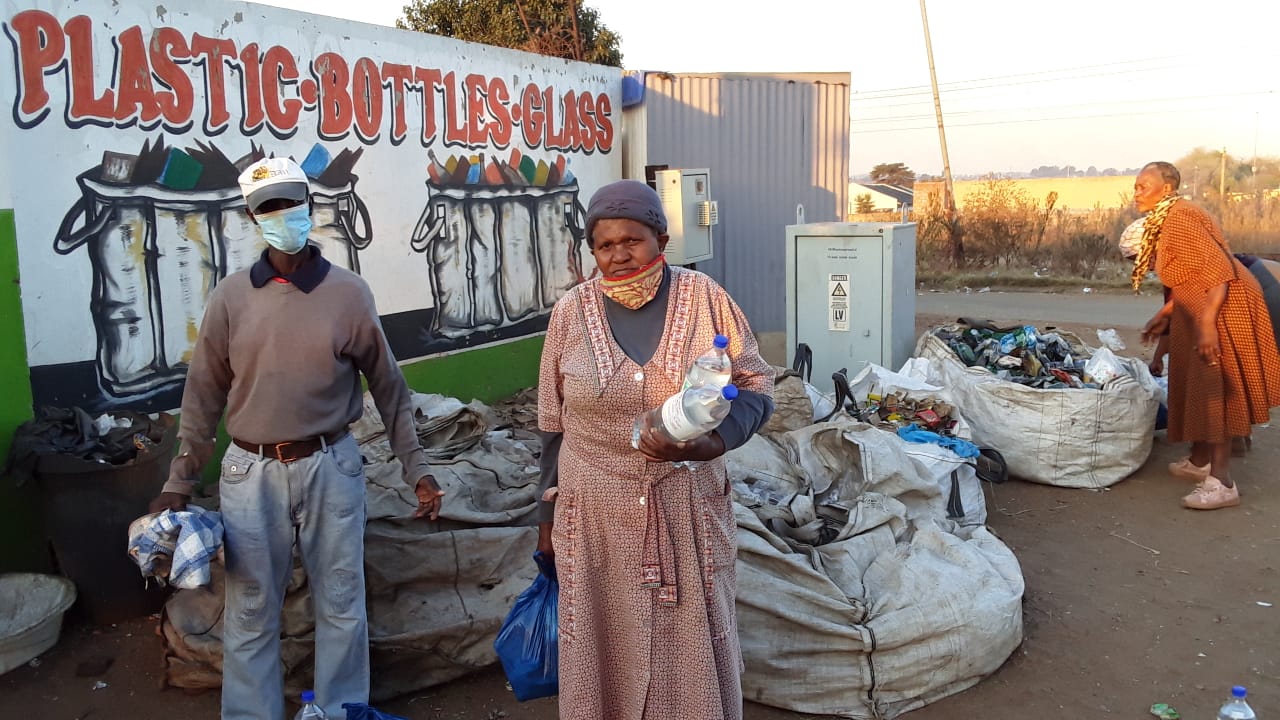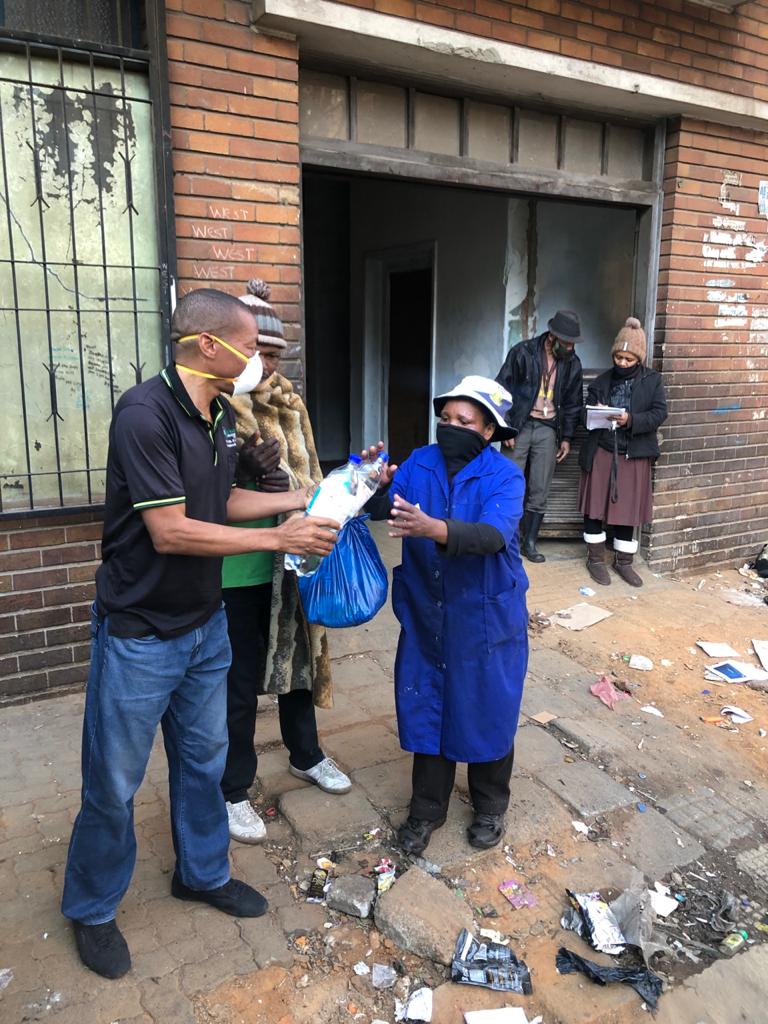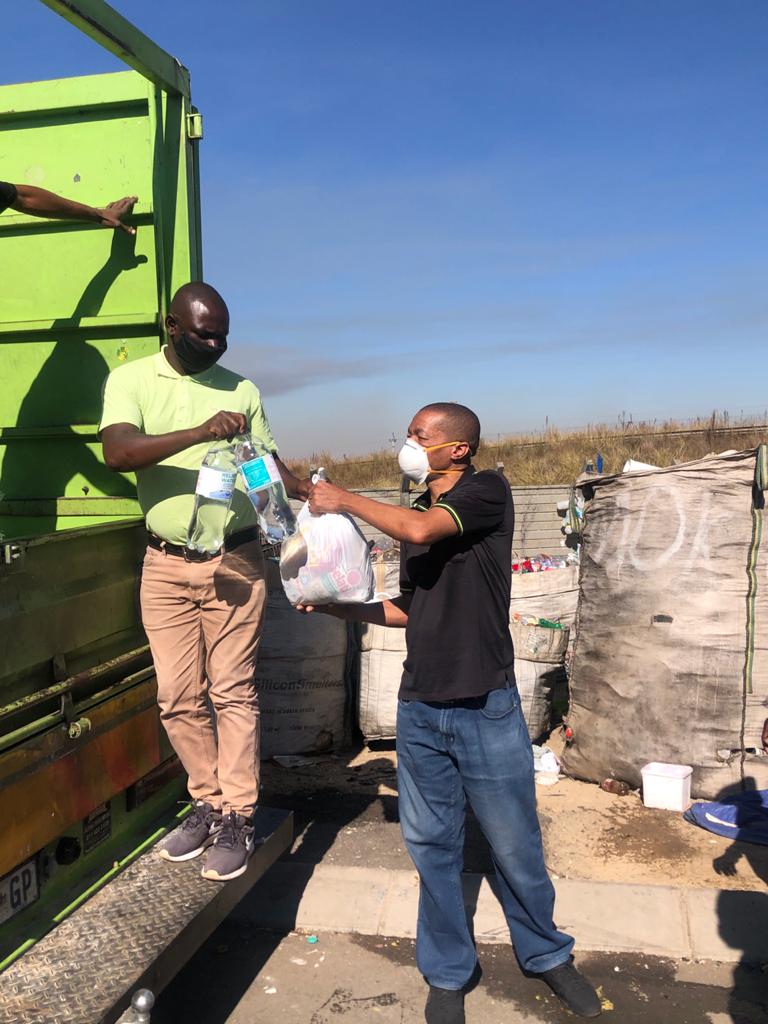Paper industry responds to Covid 19 with agility and compassion
How our sector efforts eased the burden on communities
PAMSA is immensely proud of the sector it represents and how its member companies have responded to the needs of its employees and the communities they serve. “Responding with agility and compassion is what we do best and it’s why our sector often shows resilience in the toughest times,” says Jane Molony, executive director of PAMSA.
“We wish to extend our thanks to each and every industry employee who has gone above and beyond, while trying to balance a new way of working and living.”
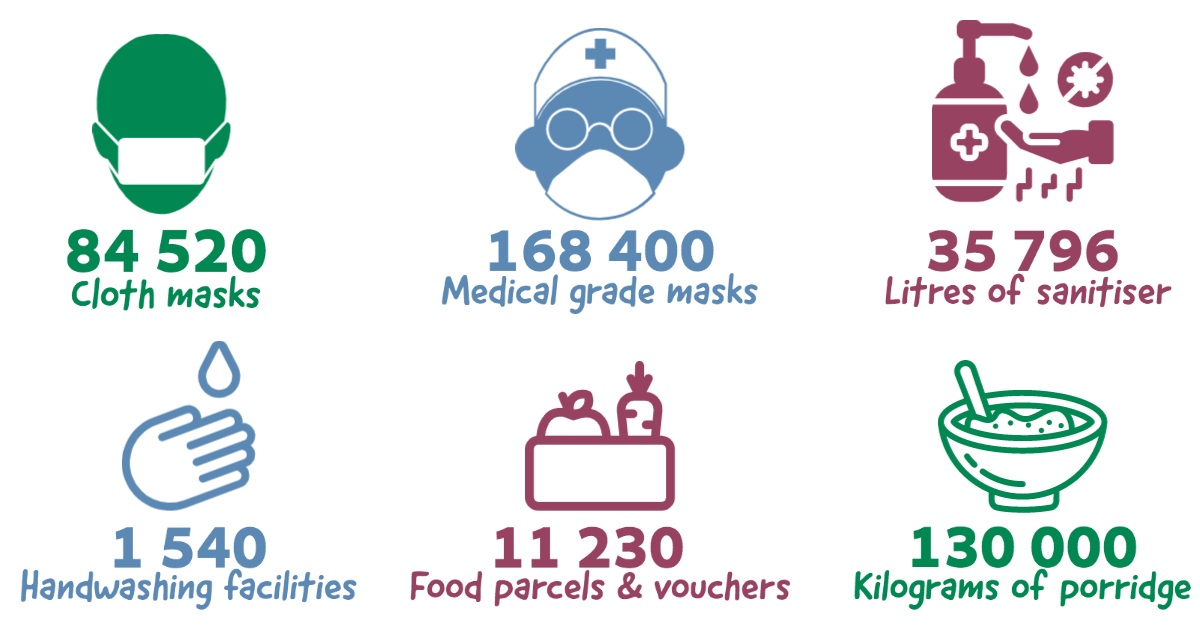
PAMSA and member representatives also played a key role in supporting the communications efforts of the water and sanitation working group for Business for South Africa.
Making a difference on Mandela Day and beyond
From 15 to 17 July, 1 500 recycling collectors received care packs as part of a Mandela Day initiative by the South African paper and paper packaging sector.
“The effects of Covid-19, lockdown, the winter months and lack of access to water for handwashing has exacerbated the plight of so many people, in particular informal recycling collectors, who live hand to mouth,” notes Anele Sololo, general manager of RecyclePaperZA.
Care packs comprised handwashing units, soap, cloth masks, food vouchers, children’s activity packs and blankets were given to 1 500 waste collectors in Springs, east of Johannesburg.
In a separate initiative, Fibre Circle distributed 600 food parcels, 5 500 face masks and 4 500 handwashing units and soap in Ekurhuleni. It also donated R30 000 to the African Reclaimers Organisation and R70 000 to the electronic food vouchers programme put together through Packaging SA and the Department of Environment, Forestry and Fisheries (DEFF).
Mondi donates 100 000 medical grade N95 face masks
Among numerous other initiatives, Mondi donated 100 000 medical grade masks in June to protect frontline healthcare workers in KwaZulu-Natal. These high-grade masks were handed over to the Solidarity Fund for delivery to the Provincial Department of Health. This donation was made at a cost of just under R10 million and was the result of a truly collaborative effort across the global Mondi network.
“Mondi is committed to playing its part in the supply of essential products during the Covid-19 outbreak. We hope that this donation will help provide much- needed protective face masks to health authorities. We want to help protect healthcare workers and curb the spread of the virus among vulnerable communities,” said Viv McMenamin, CEO Mondi South Africa.
This donation is one of many ways that Mondi has been supporting its employees, customers, suppliers and communities in and around its operations in KwaZulu-Natal.
Other Mondi initiatives included:
- Its Masidle (let’s eat) programme, in collaboration with employees, the Gift of the Givers, TWK, Trees for Africa and Coca-Cola, delivered food parcels to the most vulnerable households in local communities. To date, close to 1 500 families have been fed for a full month. Mondi also supplied vegetable seeds to support household food production.
- The installation of 40 Jojo tanks in rural communities and over half a million litres of water supplied to these communities during lockdown.
- 14 mobile clinics and 48 other health facilities received supplies and equipment, including medical masks and gloves, sanitisers and digital thermometers. Mondi funds nine of these mobile clinics which have been operating in rural KwaZulu-Natal and Mpumalanga for several years as part of a partnership with the Provincial Departments of Health and other stakeholders.
- Through Mondi’s partnership with the Ligbron Academy, rural high school maths and science students were able to download and take their study material home through the partnership’s online eLearning platform.
- In partnership with Department of Education and Ndabase, Mondi printed 24 507 study guides for Grade 11 and 12 maths and science learners at 120 schools to help them catch up and prepare for exams.
Emergency fund for small businesses
Mondi Zimele established a Covid-19 Emergency Fund to help mitigate the impact of the national lockdown on small and medium-sized enterprises.
The fund made available business support services, including financial support at discounted interest rates to Mondi South Africa suppliers.
With many small businesses facing cash flow constraints and struggling to sustain employment, it also provided loan funding and offered deferred payment holidays to existing investees. Nine businesses received relief loan funding support and deferred loan payments.
This resulted in excess of 174 permanent and 75 temporary jobs being sustained. One of the business owners said, “We greatly appreciate the assistance of Mondi Zimele. The loan received allowed us to maintain our operations and help sustain jobs throughout the Covid-19 pandemic.”
Twinsaver Group focuses on hygiene
“As the Twinsaver Group, we always place our consumers and employees at the heart of our business,” says Kuvashni Bhagwandas, senior marketing manager.
Throughout this challenging period, the company has made cloth masks, sanitisers and professional employee wellness counselling available to its staff as well as their families. With strict protocols in place to manage the working environment, hygiene education is critical and this is ongoing within the organisation.
In the Away From Home business, Twinsaver donated 1 000 masks to customers to assist them in keeping safe and provided hygiene communication to help their businesses start up post lockdown.
“As a result of this focus, we have been able to supply critical products to people in South Africa on a continuous basis, living our mission of ‘our family caring for your family’,” adds Kuvashni.
“We appreciate the work that has gone into this challenging period by all in the industry and wish everyone a well-deserved festive break.”
Sappi develops its own sanitiser prototype and assists communities in need
Responding to countrywide shortages of hand sanitiser, Sappi’s science and research centre in Pretoria refocused its efforts to produce the company’s first prototype hand sanitiser. This led to a partnership with a Johannesburg-based company to produce 16 000 litres of Sappi hand sanitiser worth about R1 million. This success enabled Sappi to distribute sanitiser to more than 80 community clinics and healthcare centres in the rural and peri-urban areas of KwaZulu-Natal and Mpumalanga. Sappi also distributed sanitiser to its own employees and their families.
As early as April this year, Sappi Southern Africa made several donations of other scarce items such as face masks, nutritional porridge and paper products, to reduce pressure on government’s resources and support the most vulnerable during these extraordinary times.
Sappi was able to procure 25 000 medical grade masks for community clinics and healthcare centres in KwaZulu-Natal and Mpumalanga as well as 73 000 cloth masks, which were needed for its own employees and contractors.
The making of the cloth masks was a result of a rapid response by the Sappi Saiccor Mill to rent spare sewing machines from a local business, install them at its skills centre and deploy six apprentices to make them. Using an easy pattern from the Internet, they were soon producing 28 masks per hour.
Sappi has since started providing community members with sewing skills at its skills centres at the Saiccor and Ngodwana mills, , at first in making the masks and now on other sewing projects.
Sappi partnered with the Southern Lodestar Foundation and the Spar Group to distribute 130 000kgs of A+ instant nutritional porridge to its rural community networks in KwaZulu-Natal and Mpumalanga. Considering that a 1kg pack of the highly nutritional A+ instant porridge can feed five adults (200g serving per person) or can provide a 50g serving to 20 children, this initiative helped literally thousands of people .
To ‘Live a Life of Note’ is the Sappi Typek brand message and in a continuation of its drive to encourage people to remain positive and to bring about positive change, Typek challenged South Africans to do just that. Using social media, people shared their messages of hope and inspiration with others on how they were ‘living a life of note’ during the lockdown to win R1 000 a day, with Sappi pledging an additional R1 000 a day to the Solidarity Fund. At the end of the campaign, Typek donated R35 000 to the fund. “Sappi also donated toilet paper and Typek office paper to the value of R2 million to the Department of Trade and Industry for distribution to deserving recipients,” commented Alex Thiel, CEO of Sappi Southern Africa.
Making an impact
Most of Mpact’s operations were deemed essential services due to the supply of packaging for food and pharmaceuticals. Only the business supplying fast food restaurant packaging was partially closed.
Mpact responded rapidly to the pandemic and took guidance from national regulations by appointing Covid-19 compliance managers and officers and rolling out extensive awareness and training material and programmes.
A number of initiatives – now commonplace at this stage in 2020 – have been implemented. These include screening of employees, contractors and visitors; availability of hand sanitiser, additional handwashing facilities, increased surface cleaning protocols, masks and face shields; physical distancing practices at work, work from home and shift system changes to minimise numbers on site. Isolation areas were set up for those developing symptoms at work and special travel arrangements were made to reduce public transport exposure. Covid-19 related statistics have been tracked weekly for each operation.
Mpact Plastics designed, manufactured and distributed face shields and over R1 million was invested in ‘family packs’ issued to assist workers’ families at home. Food packs were provided to communities of recycling collectors who were severely affected by the lockdown.
All of this had an impact on the business with turnover and profits negatively affected although it has remained profitable. Encouraging was that the number of safety-related incidents decreasedby? about 55% compared to previous years thanks to increased awareness.
Beyond the gates
Recycling Consolidated Holdings – comprising Mpact Recycling and Remade Recycling –implemented a food programme to assist recycling collectors, among others, during Level 5 of lockdown.
Restrictions prohibited informal collectors and hawkers from collecting recyclables. This led to their loss of income and, in turn, many of them were unable to feed their families. The lockdown affected everyone, especially those who are self-employed, and specifically people collecting recyclables for a living. Since Mpact Recycling and the Mpact group operate in various communities – the group realised the need to do its part by providing much-needed aid and relief.
The project was broken into two parts. During part one in April activities were centred on assisting across different branches, regions and communities, including buy-back centres, an orphanage and a home for the aged through food parcels, cardboard boxes for packaging the food parcels and cold drinks. Mpact Recycling was also directly involved with the e-voucher programme put together by PackagingSA and DEFF. Mpact’s contribution of R100 000 went towards the R785 000 that was raised by industry to supply food vouchers via cell phones to almost 4 000 recipients in outlying areas such as Richards Bay, the Eastern Cape, Northern Cape and the Northwest province to name a few.
Part two in June included more food parcels to the balance of Mpact buy-back centres and communities, as well as the distribution of face masks and books for children (sponsored by PAMSA).
In total, 1 630 food parcels, 4 520 face masks and 3 000 books were donated for the duration of the campaign.
